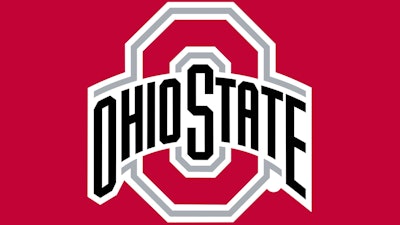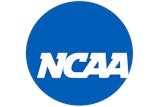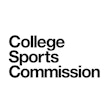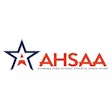
Over the course of several years, multiple NCAA violations occurred in the Ohio State fencing, women's golf and women's basketball programs, according to a decision released by a Division I Committee on Infractions panel. The former fencing head coach and former women's golf head coach violated head coach responsibility rules, and the fencing coach and former women's basketball associate head coach violated ethical conduct rules when they did not meet their obligation to fully cooperate with an investigation.
Given the scope and scale of the violations and the fact that this case came on the heels of Ohio State's November 2017 infractions case, the panel held a hearing to examine the school's compliance monitoring program. After a thorough review of Ohio State's compliance program, the panel concluded that a failure-to-monitor violation did not occur.
Fencing
The majority of the violations in this case occurred in the fencing program. Over the course of approximately five months, the former head fencing coach arranged, provided or directed other coaches to provide more than $6,000 in recruiting inducements to three prospects, primarily in the form of free access to Ohio State's fencing practice facility. While at the facility, two of the prospects also received free meals, private lessons from the head coach and other inducements. As a result of the prospects' access to the facility, members of the fencing coaching staff were able to observe all three prospects while they trained or participated in private lessons. Because Ohio State's coaching staff observed the three prospects displaying their athletic abilities, impermissible tryouts occurred under NCAA rules.
Additionally, over the course of three years, the head coach personally provided or directed coaches to provide 18 student-athletes with more than $8,000 in impermissible benefits in the form of free access to his local sports club. The local sports club rented Ohio State's fencing practice facility several times a week outside regularly scheduled team practices. Club members were charged a fee to participate in club activities, which the 18 student-athletes did not pay. As a result of the impermissible benefits, 18 fencing student-athletes competed while ineligible.
Additional recruiting inducements were provided and impermissible tryouts were conducted when an assistant coach in the fencing program arranged flights to the United States, transportation and lodging for two prospects to attend a fencing camp and compete in the USA Fencing Nationals. During their cost-free stay with the assistant coach during that trip, both prospects trained at or near Ohio State, where the assistant coach briefly observed their workouts on two occasions. The assistant coach also impermissibly owned and operated a fencing sports club in Italy during the course of his employment at Ohio State.
Finally, the fencing program violated countable coaches rules when the head coach invited an international coach to consult with the program. Despite Ohio State compliance staff's guidance that the consulting coach was only allowed to observe, the consultant led footwork drills, gave individual lessons and provided verbal instruction during practices and workouts. His participation in these activities caused the consultant to be considered a countable coach under NCAA rules.
Because the head coach was directly involved in the violations and involved other staff in those violations, the panel concluded that he violated head coach responsibility rules. The head coach also violated ethical conduct rules when he knowingly provided impermissible inducements and benefits.
"The head fencing coach violated fundamental, well-known bylaws," the panel said in its decision. "Worse, the head fencing coach received relevant education on the exact areas of the violations as they were occurring but continued to commit the same violations and, in some circumstances, concealed them from compliance staff."
The head coach ignored several requests to participate in an interview with NCAA enforcement staff. As a result, he also violated ethical conduct rules when he did not meet his obligation to fully participate in an investigation. The head coach did not respond to the notice of allegations and did not participate in the infractions hearing.
Women's golf
The women's golf program violated countable athletically related activity rules over several years. The former women's golf head coach frequently ended practices 15-30 minutes beyond the four-hour daily limit during weeks without qualifying rounds and exceeded the 20-hour weekly limits during weeks with qualifying rounds. She also failed to ensure the accuracy of student-athletes' countable athletically related activity logs in weekly reports to compliance.
In interviews with compliance staff, student-athletes expressed concern about practice time, including that practices running late occasionally made them late to class, tutoring sessions or other obligations.
The head coach acknowledged that when it came to tracking practice hours, she would input anticipated practice duration ahead of practice, instead of logging actual time. She also maintained that she did not understand that she needed to record hours for each individual student-athlete group, since groups would often finish at different times depending on when they teed off at practices. Instead, she estimated practice hours for the entire team.
Despite receiving rules education throughout her 30-year employment at the school, the head coach claimed to be unaware of issues within her program until she was alerted to the complaints in 2019. As a result of her involvement in the violations, and decades of coaching experience and NCAA rules education, the panel determined that she violated head coach responsibility rules. The coach, who retired before the infractions case, acknowledged violations occurred and accepted responsibility for her role in those violations.
Women's basketball
Violations in the women's basketball program were first uncovered as part of a Title IX investigation into the behavior of the former associate head coach in women's basketball. Specifically, the associate head coach initiated contact with student-athletes with the goal of forming personal relationships that exceeded coaching/student-athlete relationships.
As part of his efforts to establish personal relationships with student-athletes, the associate head coach provided them with impermissible benefits, including paying for manicures, loaning money for rental cars, and purchasing textbooks for a student-athlete who was not on scholarship.
Text messages uncovered during that investigation also revealed that over the course of two years, the associate head coach asked six current or former student-athletes to assist in the recruitment of six prospects. Because those student-athletes did not have preexisting relationships with the prospects and the communication did not occur during the course of an official visit, those contacts violated NCAA recruiting rules. The associate head coach also enlisted the help of a nonscholastic basketball coach to communicate with three prospects before Sept. 1 of their junior years of high school, in violation of early recruiting rules.
The associate head coach also violated recruiting rules when he paid $100 for bottle service for two prospects at a club, which is an impermissible inducement.
Although the associate head coach participated in an initial interview with Ohio State and NCAA enforcement staff, he refused the enforcement staff's request for a second interview. As a result, he violated unethical conduct rules because he did not meet his obligation to fully participate in an NCAA investigation. The associate head coach did not respond to the notice of allegations and did not participate in the infractions hearing.
Unrelated to the associate head coach's conduct but as a result of the investigation into the program, the compliance department learned that the program had also violated countable athletically related activity rules because coaches had been present for pre-practice shootarounds but did not record those shootarounds as countable. These shootarounds resulted in approximately six hours of CARA overages over the course of two academic years.
Compliance monitoring efforts
During the hearing, a key focus for the Committee on Infractions panel was Ohio State's compliance program. The scope and scale of this case, especially considering the similar nature of Ohio State's recent November 2017 infractions case, prompted the panel to engage in a significant review of Ohio State's policies and procedures, education and monitoring efforts. Although the committee identified gaps in Ohio State's compliance program, it concluded that a failure-to-monitor violation did not occur.
"The panel recognizes that the institution dedicates significant resources to its compliance program that, in many ways, exceed those of other Division I institutions," the panel said in its decision. "To be clear, resource dedication alone does not fulfill the minimum compliance requirements … but here, the resources combined with the compliance program that Ohio State had in place outweighs the deficiencies identified by the panel."
The panel classified the case as Level I-standard for the university, Level I-aggravated for the former fencing head coach, Level II-mitigated for the former women's golf head coach and Level I-aggravated for the former women's basketball associate head coach. The committee used the Division I membership-approved infractions penalty guidelines to prescribe the following measures:
- Four years of probation.
- A $5,000 fine, plus 3% of the fencing program budget, 1% of the women's golf budget, and 1% of the women's basketball budget.
- A 2020-21 postseason ban for the fencing, women's golf and women's basketball programs (self-imposed).
- Scholarship reductions in fencing and women's basketball by 5% and 7%, respectively, during the 2020-21 academic year (self-imposed). The committee prescribed an additional 10% in scholarship reductions for the fencing program during the 2022-23 academic year.
- Recruiting restrictions:
- A prohibition on official visits in fencing during the 2018-19 academic year (self-imposed).
- A three week-ban on unofficial visits in fencing for three weeks during the 2018-19 academic year (self-imposed). The committee prescribed an additional 10-week ban on unofficial visits in fencing for the 2022-23 academic year.
- A three-week ban on recruiting communication in fencing during the 2018-19 academic year (self-imposed). The committee prescribed an additional 10-week ban on recruiting communication during the 2022-23 academic year.
- A 12-week ban on off-campus recruiting for an assistant fencing coach during the 2018-19 academic year (self-imposed). The committee prescribed an additional one-week ban for the fencing coaching staff during the 2022-23 academic year.
- A reduction in official visits in women's basketball by four during the 2021-22 academic year (self-imposed).
- A seven-week ban on official visits for women's basketball during the 2021-22 academic year (self-imposed).
- A reduction in the number of recruiting person days in women's basketball by 10 during the 2021-22 academic year (self-imposed).
- A two-week ban on recruiting communication in women's basketball during the 2020-21 and 2021-22 academic years (self-imposed).
- A 10-year show-cause order for the former fencing head coach. During that period, any NCAA member school employing him must restrict him from any athletically related duties unless it shows cause why the restrictions should not apply. If hired by an NCAA member school after the show-cause order has ended, the former head coach will be suspended from 100% of his first season of employment.
- A 10-year show-cause order for the former women's basketball associate head coach. During that period, any NCAA member school employing him must restrict him from any athletically related duties unless it shows cause why the restrictions should not apply.
- The (now former) women's golf head coach was suspended from 15% of competitions and three weeks of coaching during the 2020-21 academic year (self-imposed).
- A vacation of all fencing and women's basketball records in which student-athletes competed while ineligible. The university must provide a written report containing the contests impacted to the NCAA media coordination and statistics staff within 14 days of the public release of the decision (self-imposed).
- Countable athletically related activity restrictions:
- A reduction in fencing CARA hours by two per week during the 2018-19 academic year (self-imposed).
- A 13-week ban on women's golf CARA during spring and summer of 2020 (self-imposed).
- A three-week ban on women's basketball CARA during spring of 2020 (self-imposed).
- A ban on coaches clinics in women's basketball during summer 2020 and the summer of 2021, and a ban on any women's basketball camps or clinics during summer 2021 (self-imposed).
Members of the Committee on Infractions are drawn from the NCAA membership and members of the public. The members of the panel who reviewed this case are Carol Cartwright, president emerita of Bowling Green and Kent State; Rich Ensor, commissioner of the Metro Atlantic Athletic Conference; Thomas Hill, senior vice president emeritus at Iowa State; Jason Leonard, executive director of athletics compliance at Oklahoma; Joe Novak, former football head coach at Northern Illinois; Dave Roberts, chief hearing officer for the panel and special advisor to Southern California; and Mary Schutten, former executive vice president and provost at Central Michigan.




































